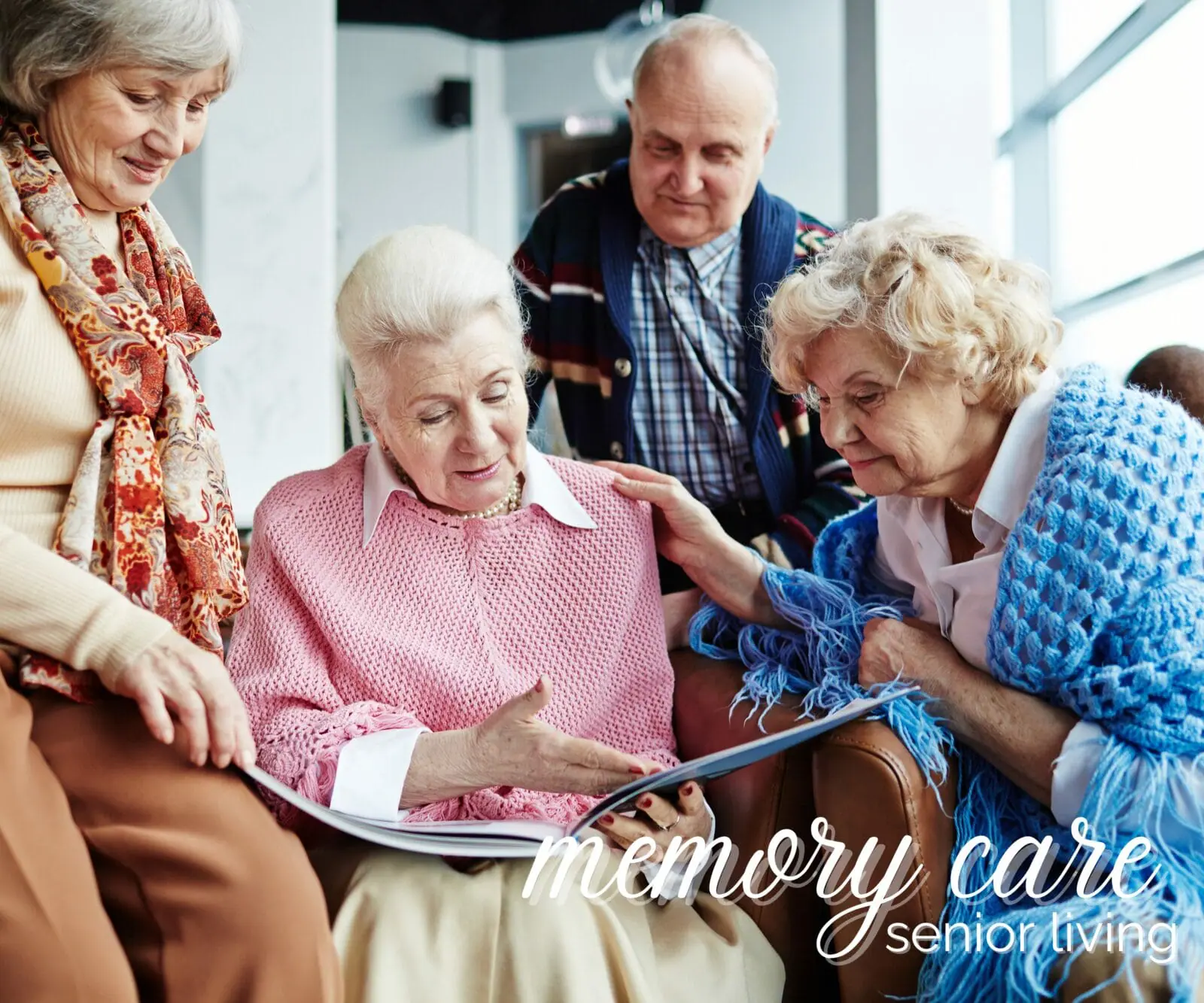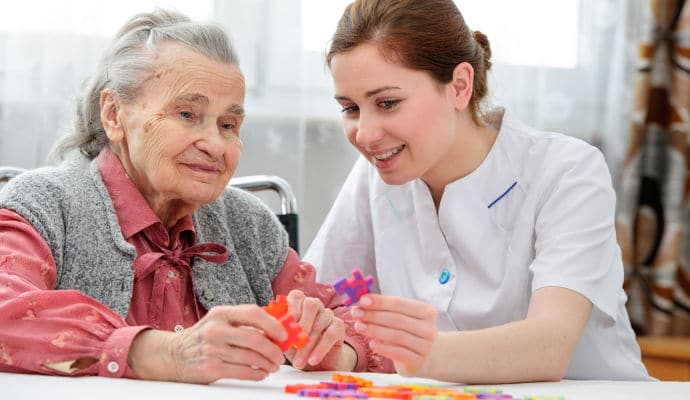Specialist and Dedicated Solutions for Alzheimers Care Charlotte Homeowners
Specialist and Dedicated Solutions for Alzheimers Care Charlotte Homeowners
Blog Article
Developing a Safe and Helpful Environment for Alzheimer's Care
The creation of a supportive and secure environment for individuals with Alzheimer's is extremely important in enhancing their quality of life. This entails not just physical adaptations within the home, such as decreasing dangers and integrating acquainted elements, however also the implementation of structured routines and significant tasks that provide to their cognitive requirements. In addition, understanding the emotional and psychological measurements of care can dramatically affect their sense of safety and security and connection. Discovering these complex methods can disclose vital understandings into effective caregiving strategies that might transform the daily experiences of both clients and caretakers.
Understanding Alzheimer's Demands
Often, people with Alzheimer's illness exhibit a range of demands that require customized methods to care. As the condition progresses, cognitive decline materializes in various means, impacting memory, thinking, and even the capacity to perform day-to-day tasks. Caretakers should recognize these evolving requirements to give ideal assistance and ensure a greater top quality of life for those impacted.
One crucial facet of comprehending Alzheimer's demands is acknowledging the importance of routine and knowledge. People commonly discover convenience in recognized patterns, which can lower anxiety and complication. Caretakers need to make every effort to develop organized everyday schedules that include purposeful activities aligned with the individual's passions and capabilities.
Additionally, effective interaction is critical. People with Alzheimer's might have a hard time to share themselves or comprehend intricate language. Caregivers need to use basic, clear language, usage non-verbal signs, and practice energetic listening to cultivate understanding and connection.
Caretakers should motivate involvement in area activities or family events, promoting a feeling of belonging and objective. Understanding these varied needs is necessary for developing an encouraging treatment atmosphere.
Designing a Safe Home
Creating a secure home for individuals with Alzheimer's disease is important to reducing risks and advertising independence. The design of the living space ought to focus on security while enabling individual convenience. Get rid of potential threats such as loose carpets, sharp items, and clutter, which can lead to drops or crashes. Guarantee that pathways are well-lit and clear, as appropriate illumination decreases disorientation and enhances wheelchair.
Incorporating flexible attributes is likewise vital. Mount grab bars in bathrooms and near stairs, and consider utilizing non-slip mats in damp areas. Furthermore, using different shades for floors and wall surfaces can assist in identifying spaces, assisting to mitigate complication.
Experience is necessary for individuals with Alzheimer's. Personalizing the setting with acquainted objects and photographs can enhance a sense of belonging and safety - Alzheimers Care Charlotte. It is also beneficial to have a marked location for day-to-day activities, such as analysis or crafting, which can supply structure to their day
Finally, implementing a protected outside area enables safe exploration while attaching with nature. By attentively creating the home setting, caregivers can considerably improve the quality of life for individuals coping with Alzheimer's condition.
Enhancing Communication Skills

Non-verbal interaction, including face expressions, motions, and touch, plays a vital duty in communicating compassion and understanding. Keeping eye contact and a tranquil temperament can boost the convenience degree of the person, advertising a feeling of security.
In addition, it is essential to practice active listening. This involves more helpful hints being fully existing, showing perseverance, and permitting the individual to reveal themselves without interruption. Repetition might be essential; caretakers need to be prepared to take another look at topics or inquiries, as individuals with Alzheimer's may have problem with memory recall.
In addition, using visual help or signs, such as photos or acquainted items, can help with acknowledgment and involvement. Inevitably, improving communication skills is about constructing count on and developing an environment where people feel heard, valued, and comprehended, thus enriching their lifestyle.
Urging Social Communication
Fostering meaningful social interactions can greatly improve the wellness of people with Alzheimer's condition. Engaging with others not just aids battle sensations of seclusion yet additionally continue reading this stimulates cognitive feature and emotional health and wellness. Structured social tasks, such as group arts, crafts and video games, or songs therapy, develop possibilities for citizens to attach with peers and caregivers, which can bring about boosted state of mind and decreased anxiousness.
Creating an inviting atmosphere that urges socializing is crucial. This can be attained by organizing communal rooms that facilitate interaction, such as comfy seating locations or activity spaces. Additionally, including culturally appropriate and familiar tasks can trigger memories and encourage engagement, allowing people with Alzheimer's to really feel more connected to their previous experiences.
Furthermore, caregivers need to be educated to identify and promote social engagement amongst homeowners. By prioritizing social interaction, we can significantly enhance the lives of those living with Alzheimer's, fostering a feeling of community and belonging.
Supporting Caretaker Health

To support caretakers, organizations need to supply normal training and educational resources to enhance their understanding of Alzheimer's disease and caregiving techniques. Offering accessibility to respite care solutions enables caregivers to take essential breaks, minimizing stress and anxiety and fatigue - Alzheimers Care Charlotte. Additionally, promoting an area with support teams can assist in emotional sharing and the exchange of sensible advice among caregivers, developing a network of mutual assistance
Mental health and wellness sources, such as counseling solutions, can also be essential in dealing with the psychological toll caregiving can take. By focusing on caregiver well-being, we develop an even more lasting caregiving setting that not just benefits the caretakers themselves yet additionally enhances the overall high quality of care received by people with Alzheimer's. Inevitably, supporting caregivers is a necessary component in cultivating a caring and efficient treatment setup.
Conclusion
To conclude, the development of a supportive and risk-free setting for people with Alzheimer's is vital to enhancing their high quality of life. By focusing on security through thoughtful layout, cultivating emotional health with acquainted aspects, and advertising interaction via structured regimens, caretakers can significantly influence the overall experience of view website those impacted by this problem. Supporting caregiver health is essential, as it inevitably contributes to a more thoughtful and effective care atmosphere.
Repeating might be required; caretakers ought to be prepared to revisit questions or topics, as people with Alzheimer's may battle with memory recall.

Report this page